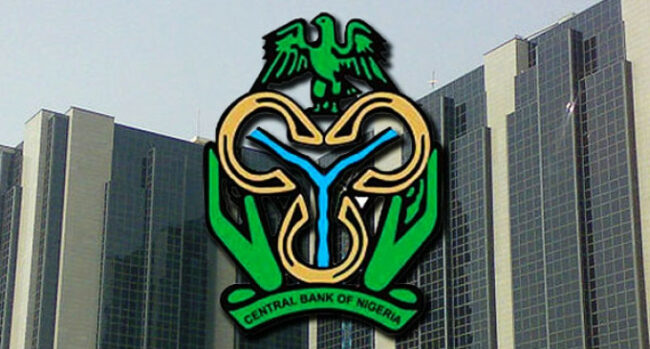The Central Bank of Nigeria’s (CBN) decision to maintain the Monetary Policy Rate (MPR) at 27.5 per cent has validated analysts’ forecasts and reinforced the institution’s steady, data-driven approach to navigating Nigeria’s challenging economic environment. This third consecutive rate hold in 2025 underlines the CBN’s commitment to controlling inflation, stabilizing the foreign exchange market, and sustaining macroeconomic stability amid global and domestic uncertainties.
Backed by economic think tanks including Meristem Securities and the Centre for the Promotion of Private Enterprise, the move has been widely interpreted as both cautious and strategic. Analysts believed that maintaining the Monetary POLICY Rate (MPR) at its current level will help manage inflation expectations while keeping Nigeria attractive to foreign investors, particularly those interested in portfolio inflows.
Key decisions at July MPC meeting
The decision was announced following the CBN’s 301st Monetary Policy Committee (MPC) meeting, held on July 21 and 22, 2025. The committee, composed of 12 members, unanimously agreed to retain all major policy parameters: Monetary Policy Rate (MPR) at 27.5 percent; Cash Reserve Ratio (CRR) at 50 percent for deposit money banks and 16 per cent for merchant banks; Liquidity Ratio at 30 per cent; Asymmetric corridor around the MPR at +500/-100 basis points
These decisions underscored the CBN’s preference for a cautious policy stance, even in the face of signs that inflationary pressures may be gradually easing.
In June 2025, headline inflation declined to 22.22 per cent from 22.97 per cent in May. This marks the third straight month of decline and indicates that Nigeria may be turning a corner in its battle with high inflation. The improvement was driven primarily by easing energy prices and enhanced foreign exchange stability.
However, the MPC expressed concern over rising month-on-month inflation, which increased from 1.53 per cent in May to 1.68 per cent in June. Food inflation also rose to 21.97 percent from 21.14 per cent, mainly due to the rising costs of processed food items. Meanwhile, core inflation (excluding food and energy) ticked up from 22.28 percent to 22.76 percent, fueled by rising prices in housing, communication, and personal care services.
These figures suggest that underlying price pressures remain strong, requiring the CBN to maintain its tight monetary policy in order to prevent inflation from resurging.
Exchange rate and external sector improvements
The MPC cited noticeable improvements in Nigeria’s external sector, particularly in the foreign exchange market. This has been helped by several factors, including: Increased capital inflows; Higher crude oil production; Rising non-oil export revenues and a sharp decline in aggregate imports
As a result, Nigeria’s gross external reserves rose to 40.11 billion U.S. dollars as of July 18, 2025. This level of reserves translates to about 9.5 months of import cover, giving the central bank a stronger buffer against global economic shocks and exchange rate volatility.
On the domestic front, Nigeria’s real Gross Domestic Product (GDP) grew by 3.13 per cent in the first quarter of 2025. This is an improvement from 2.27 percent recorded in the first quarter of 2024 but slightly below the 3.38 per cent posted in the previous quarter. Indicators such as the Purchasing Managers’ Index (PMI) continue to suggest that economic activity is on an upward trend.
Despite these gains, experts warned that GDP growth remains weak when viewed against Nigeria’s population growth, which implies stagnant per capita income levels. Moreover, the agricultural sector continues to underperform. Agricultural GDP rose by just 0.07 per cent in the first quarter of the year, highlighting serious structural challenges in food production—a key driver of inflation in Nigeria.
The MPC also noted the progress made in the ongoing recapitalization of the banking sector. Eight banks have met the new capital requirements, with others on course to meet the deadline. Strengthening the capital base of banks is expected to enhance the resilience and soundness of the financial system.
Expected and necessary —Analysts
Financial market observers and economic experts have widely endorsed the CBN’s rate hold, describing it as both expected and necessary under current circumstances.
Mr. Johnson Chukwu, CEO of Cowry Asset Management Limited, stated that the decision was a rational response to prevailing macroeconomic conditions. “Yes, inflation has declined for three consecutive months, but at 22.22 per cent, we are still far from the CBN’s single-digit inflation target,” he noted.
Chukwu explained that the modest GDP growth of 3.13 per cent barely outpaces Nigeria’s population growth. He also pointed out that the injection of over ₦1.18 trillion in liquidity could fuel inflation and put pressure on the naira. The slow growth in agriculture only adds to the risk of persistent food inflation.
“We can’t afford to tighten further because that would hurt already weak economic growth. But we also cannot afford to loosen, as inflation and forex pressures are still very present.
“A premature rate cut, at this point, could have undermined investor confidence and triggered capital reversals, potentially compounding FX liquidity constraints and placing renewed pressure on the naira,” he concluded.
Dr. Paul Alaje, Chief Economist at SPM Professionals, echoed similar sentiments. He emphasized that holding the rate is itself a proactive policy choice. “We had anticipated that all rates would remain the same given the complex domestic and global backdrop,” he said.
He cautioned that adjusting rates—especially downward—would be premature. “While some advanced economies have started easing monetary policy, inflation in Nigeria remains significantly above acceptable levels. Reducing the MPR now would be hasty,” he noted.
Dr. Alaje highlighted that with the MPR at 27.5 per cent and an asymmetric corridor of +500/-100 basis points, actual lending rates to the private sector can range from over 30 percent to even 40 per cent. Such high borrowing costs, though painful, are necessary to bring inflation under control.
He added: “The MPC’s decision shows discipline. They’ve chosen to observe trends before making further adjustments. Any decision to ease policy should only come when inflation shows sustainable downward momentum.”
Global trends
The MPC’s policy decisions are not made in a vacuum. The committee took into account ongoing global economic developments. While inflation has moderated in several advanced economies, leading to rate cuts in countries like the U.K. and the U.S., emerging markets continue to grapple with inflation and sluggish growth.
In many developing economies, inflation is driven by structural inefficiencies, supply-chain disruptions, and dependency on imported goods. For Nigeria, geopolitical tensions and the global tariff war further complicate the macroeconomic outlook by increasing the cost of imports.
Consequently, the MPC judged that Nigeria’s tight monetary policy stance must be maintained until there is clearer evidence that inflation has been durably tamed.
ALSO READ FROM NIGERIAN TRIBUNE: Tinubu surrenders to North-Central as Yilwatda emerges APC national chairman
Looking ahead, projections by CBN staff suggest that inflation will likely decline further in the coming months. This is expected to be supported by: Continued tight monetary policy; Stable exchange rates; Falling petrol and diesel prices; Moderation in food prices as the harvest season progresses
Despite this optimism, the CBN has made it clear that it will remain vigilant. The MPC reiterated its readiness to respond swiftly to any emerging economic risks, adjusting policy as needed to ensure continued macroeconomic stability.
As Nigeria navigates a complex matrix of high inflation, modest growth, and global uncertainty, the decision to maintain the MPR at 27.5 per cent stands as a calculated and prudent move according to experts.
It affirms the CBN’s resolve to uphold price stability, bolster investor confidence, and avoid any missteps that could derail fragile economic progress.
It is widely agreed that the MPC has struck the right balance between containing inflation and not stifling growth. While interest rates remain high, this is seen as a necessary trade-off to curb inflation and restore macroeconomic stability in the long run.
On his part, CBN governor, Olayemi Cardoso, has reiterated the bank’s determination to collaborate with fiscal authorities to ensure consistency in policy thrust and reduce uncertainties. He added that the Bank aims to achieve single-digit inflation given the positive economic trajectory and that the Bank will be transparent in managing Nigerians’ inflation expectations.
The next MPC meeting is scheduled for September 22–23, 2025. Until then, all eyes will remain on the CBN as it continues to monitor economic developments and fine-tune its monetary policy to safeguard Nigeria’s economic future.
WATCH TOP VIDEOS FROM NIGERIAN TRIBUNE TV
- Let’s Talk About SELF-AWARENESS
- Is Your Confidence Mistaken for Pride? Let’s talk about it
- Is Etiquette About Perfection…Or Just Not Being Rude?
- Top Psychologist Reveal 3 Signs You’re Struggling With Imposter Syndrome
- Do You Pick Up Work-Related Calls at Midnight or Never? Let’s Talk About Boundaries






